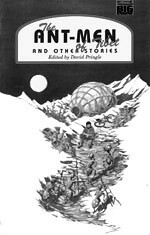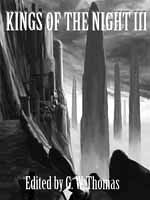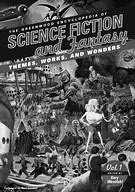Thursday, July 06, 2006
W0K: Chapter mindset
The postponed July 4 fireworks display was last night, so we took the girls out to watch and didn't get back to the house until after 10. Factor in the decompression, prepping the girls for bed, reading a chapter of The Last Unicorn in there, and I was too bushed to write anything. Which sucks. I'm more hopeful for tonight.
Since I don't have a chapter excerpt to post, I thought I'd comment on something I've been mulling over for quite a while now--mainly why I suspect earlier attempts at writing Wetsilver have failed (at least in part). Other than The Broken Balance, the epic first book of a high fantasy trilogy I wrote back in high school, all of my fiction has been of the short fiction variety. I hadn't realized it until fairly recently, but every time I've started a novel--yes, even The Broken Balance--I approached it as I would short fiction. That is, in my mind, each chapter was the equivalent of one short story. I don't know where this mindset came from, because I didn't read those famous "fix-up" SF novels from the '50s and '60s (Simak's City and the like) until college or thereafter. But that view was firmly entrenched.
Whenever I wrote a chapter, I built is as a self-contained story unto itself. There was a beginning, middle and end, even if said chapter didn't have narrative elements that lent themselves to this approach. The result was that I essentially encouraged potential readers to put the book down at every opportunity. "Oh, here's a good stopping place then. I'll go ahead and watch the nightly news then pick up again tomorrow." This is exactly the opposite effect a writer wants--the goal of a novel (one of the goals, at least) is to suck the reader into your fictional world and get them so engrossed that they don't want to leave. Showing them the door at every chapter break isn't the way to do this.
Now, I'm not saying I'm building in a cliffhanger at the end of each chapter. Well, there is one at the end of chapter 1, but that's a special case, right? What I am doing is ending each chapter with a little question, a little void of knowledge, something to provoke a sense of anticipation in the reader, a need to know "What comes next?" At least, that's my hope. I have no idea how successful I've been thus far, and undoubtably much will change in the second draft. But I'm pleased that even the evil, uncooperative chapter 9 end with a promise of Interesting Stuff that should pique the reader's interest. And I think the novel-in-progress is much stronger for it.
Now Playing: Various Celtic Moods
Since I don't have a chapter excerpt to post, I thought I'd comment on something I've been mulling over for quite a while now--mainly why I suspect earlier attempts at writing Wetsilver have failed (at least in part). Other than The Broken Balance, the epic first book of a high fantasy trilogy I wrote back in high school, all of my fiction has been of the short fiction variety. I hadn't realized it until fairly recently, but every time I've started a novel--yes, even The Broken Balance--I approached it as I would short fiction. That is, in my mind, each chapter was the equivalent of one short story. I don't know where this mindset came from, because I didn't read those famous "fix-up" SF novels from the '50s and '60s (Simak's City and the like) until college or thereafter. But that view was firmly entrenched.
Whenever I wrote a chapter, I built is as a self-contained story unto itself. There was a beginning, middle and end, even if said chapter didn't have narrative elements that lent themselves to this approach. The result was that I essentially encouraged potential readers to put the book down at every opportunity. "Oh, here's a good stopping place then. I'll go ahead and watch the nightly news then pick up again tomorrow." This is exactly the opposite effect a writer wants--the goal of a novel (one of the goals, at least) is to suck the reader into your fictional world and get them so engrossed that they don't want to leave. Showing them the door at every chapter break isn't the way to do this.
Now, I'm not saying I'm building in a cliffhanger at the end of each chapter. Well, there is one at the end of chapter 1, but that's a special case, right? What I am doing is ending each chapter with a little question, a little void of knowledge, something to provoke a sense of anticipation in the reader, a need to know "What comes next?" At least, that's my hope. I have no idea how successful I've been thus far, and undoubtably much will change in the second draft. But I'm pleased that even the evil, uncooperative chapter 9 end with a promise of Interesting Stuff that should pique the reader's interest. And I think the novel-in-progress is much stronger for it.
Now Playing: Various Celtic Moods









